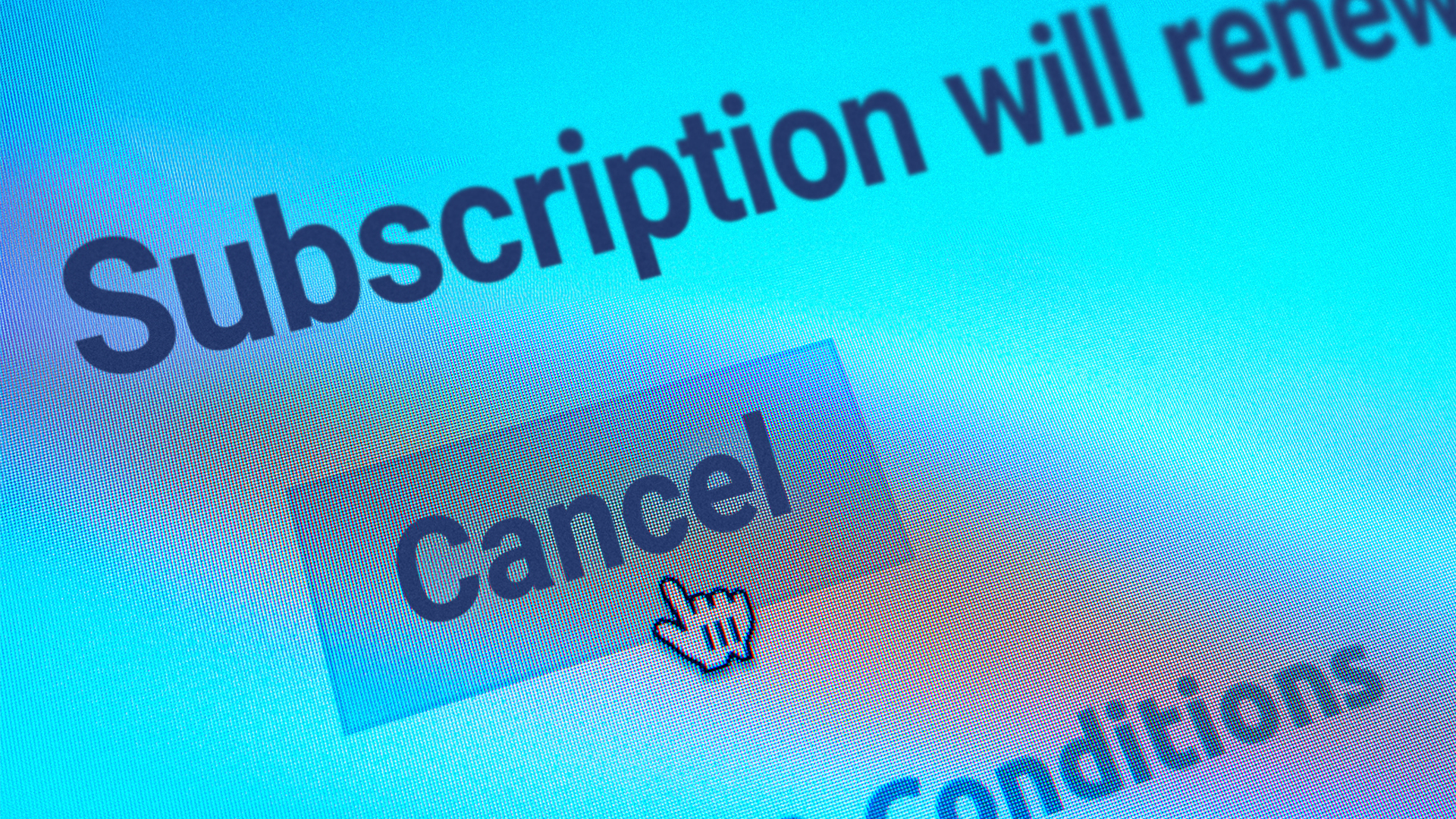
[Simone Del Rosario]
Well that didn’t take long. A week after the Federal Trade Commission finalized its “click to cancel” rule, industry groups are suing to block it.
The FTC rule is this: It has to be “at least as easy” to cancel an online subscription as it was to sign up. If signing up takes one click – the same needs to be true of canceling.
The agency says they receive about 70 complaints a day regarding deceptive subscription traps.
Teresa Murray:
it’s like the proverbial Hotel California. You can check out anytime you like, and you can but you can never leave.
Hi, I’m Teresa Murray. I’m consumer watchdog director with US Public Interest Research Group, and as my title suggests, I focus on consumer issues, primarily product safety, food safety, airlines and all kinds of scams.
Simone Del Rosario:
FTC Chair Lina Khan says, “The FTC’s rule will end these tricks and traps, saving Americans time and money. Nobody should be stuck paying for a service they no longer want.”
Teresa Murray:
Maybe you decide to cancel, and then you go online to try and cancel it, and it may take you to one screen and then another screen and then another screen.
After you go through like six of these screens, and then it might say, Oh, hey, you need to call, and here’s the phone number to our customer service line, but there are limited hours, so maybe you call the number because you want to cancel after all, right? And then you get pulled on hold for 45 minutes, you get transferred three times, and then you get disconnected.
Simone Del Rosario:
Three industry groups are saying, not so fast. In a lawsuit filed Wednesday, they claim the rule is “arbitrary, capricious, and an abuse of discretion,” adding the FTC is attempting to “regulate consumer contracts for all companies in all industries and across all sectors of the economy.”
Teresa Murray:
Well, we weren’t surprised, because the FTC had actually said that they fully expected to be sued.
Simone Del Rosario:
Here are the three groups. The Electronic Security Association represents companies that install or monitor electronic security and safety devices…companies like ADT.
The Interactive Advertising Bureau reps leaders in digital advertising and media, like Amazon, TikTok, LinkedIn and Disney.
And the NCTA – The Internet and Television Association, boasts some of the biggest names in cable programming and providers.
SAN asked NCTA for an interview. They declined. When asked for a statement, they said the 240-page lawsuit “serves as our commentary on the appeal.”
The industry groups’ legal argument is based on two accusations: that violations were made during the rulemaking process and that the ruling is outside the FTC’s scope and constitutional authority.
Teresa Murray:
I find it disappointing that companies would think that it they shouldn’t have to be transparent. Like, who has a problem with being transparent with your customers?
Simone Del Rosario:
But the FTC ruling was not unanimous. In a 3-2 vote, dissenting commissioners argued along the lines of industry groups that filed suit.
The rule is part of the Biden Administration’s “Time is Money” initiative, a government-wide effort to quote, “crack down on everyday headaches and hassles that waste Americans’ time and money.” If it survives legal challenges, it’ll go into effect 180 days after being published in the Federal Register.









